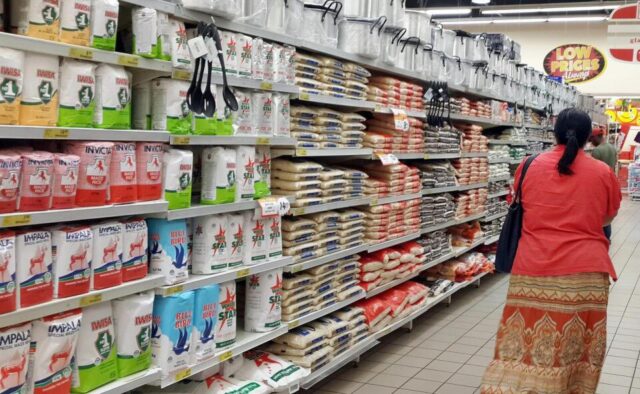The consensus is that load shedding will likely remain at relatively high levels for the foreseeable future, which will be a key factor in keeping local food prices higher for longer, say economists.
FOOD prices in South Africa are unlikely to drop, despite softer agricultural prices, economist say.
Dr Marlene Louw, the senior agricultural economist at Absa Relationship Banking, said this week that agricultural commodity prices would soften this year, which could bring some relief to the inflationary pressures apparent in food prices over the past months.
However, Louw said although the inflation rate was expected to moderate, they did not see a lot of scope for lower food prices as load shedding and exchange rate dynamics were likely to limit the effect of lower commodity prices and would affect manufacturing and distribution costs in food value chains.
“Load shedding will lead to higher production costs and lower volumes in the agricultural and food industries. Limited processing capacity leads to lower production volumes through food value chains such as vegetables and livestock. This, in turn, causes fixed costs to be spread over fewer units of production, be it carcasses or processed tonnes.
“In the case where alternative energy sources such as diesel generators are used to limit capacity constraints, the cost of electricity also increases substantially. Other costs such as waste and the effect of disruptions in consumers’ purchasing patterns as a result of load shedding are difficult to measure, but would also have a major impact,” she said.
South Africa’s agricultural commodity prices would likely continue to soften from last year’s levels, although not to pre-Covid-19 levels, but this would still be sufficient to moderate consumer food price inflation.
The global grains and oilseeds prices continued to soften following interventions by UN representatives, the Turkish government, and the Russian and Ukrainian governments to ease grain exports out of the Black Sea region through the ‘Black Sea Grain Deal’.
Last month, the Food and Agriculture Organization of the UN Global Food Price Index, a measure of the monthly change in international prices of a basket of agricultural commodities, was at 126.9 points, down by 2.1% from the February print. This marked the 12th consecutive monthly decline since it reached its peak one year ago.
Casey Delport, an investment analyst at Anchor Capital, said many factors that had driven local food inflation over the past year were not unique to South Africa.
She said these included high agricultural commodity prices globally, as well as increased energy costs, which influenced the prices of inputs such as fuel fertiliser.
“While a number of these global factors are easing, as evidenced in the continued decline in the FAO’s Food Price Index, the depreciation in South Africa’s exchange rate has offset much of the global decline.
“At the same time, persistently high levels of load shedding added significant costs across the agriculture and food value chain. Notably, the sharp exchange rate depreciation has prevented much of the observed decline in world prices from transferring to South Africa,” Delport said.
Looking ahead, she said any significant appreciation in the coming months would have the opposite effect – easing domestic prices for agricultural commodities.
However, this effect could lessen if load shedding was maintained at lower levels.
“Unfortunately, the consensus is that load shedding will likely remain at relatively high levels for the foreseeable future, which will, in turn, be a key factor in keeping local food prices higher for longer.
“For March 2023, the high base effects of March 2022 are likely to cause food inflation to moderate somewhat.
“Nonetheless, an increase in administered prices, such as electricity, due to be implemented in April, could further add cost pressures that, in turn, are likely to keep food prices elevated over the coming months,” Delport noted.
– BUSINESS REPORT








